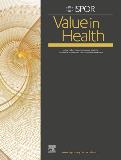
Real-world evidence on treatment outcomes can be an important aspect of the evidence basis for decision making if it is seen as credible. For real-world studies that are meant to test hypotheses about comparative-effectiveness or safety, a key aspect of credibility is that they are conducted transparently with tests that follow a prespecified analytic protocol. Preregistration of such study protocols on a public website would help build trust that their results can be used for decision-making purposes.
Establishing a Culture of Transparency for Real-World Evidence Studies...
The Real-World Evidence Transparency Initiative Partnership is a joint collaboration and ongoing effort between ISPOR, the International Society for Pharmacoepidemiology, the Duke-Margolis Center for Health Policy, and the National Pharmaceutical Council. The objective of this initiative is to establish a culture of transparency for study analysis and reporting of hypothesis evaluating real-world evidence studies on treatment effects.
Improving Transparency to Build Trust...
 The Real-World Evidence Transparency Initiative published a plan to encourage routine registration of noninterventional real-world evidence studies used to evaluate treatment effects. The report, “Improving Transparency to Build Trust in Real-World Secondary Data Studies for Hypothesis Testing—Why, What, and How: Recommendations and a Road Map from the Real-World Evidence Transparency Initiative,”
was published in the September 2020 issue of Value in Health.
The Real-World Evidence Transparency Initiative published a plan to encourage routine registration of noninterventional real-world evidence studies used to evaluate treatment effects. The report, “Improving Transparency to Build Trust in Real-World Secondary Data Studies for Hypothesis Testing—Why, What, and How: Recommendations and a Road Map from the Real-World Evidence Transparency Initiative,”
was published in the September 2020 issue of Value in Health.
More...
The report, “Improving Transparency to Build Trust in Real-World Secondary Data Studies for Hypothesis Testing—Why, What, and How: Recommendations and a Road Map from the Real-World Evidence Transparency Initiative,” was published in the September 2020 issue of Value in Health. The plan includes specifying the rationale for registering hypothesis-evaluating treatment effectiveness real-world evidence studies, the studies that should be registered, where and when these studies should be registered, how and when analytic deviations from protocols should be reported, how and when to publish results, and incentives to encourage registration.
Real-World Evidence Registry
The Real-World Evidence Registry provides researchers with a fit-for-purpose platform to register their study designs before they begin work to facilitate the transparency needed to elevate the trust in the study results.
More...
Real-world evidence studies can be used for hypothesis evaluation of treatment effects including safety (HETE studies). However these studies can also be perceived as less rigorous than clinical trials especially when not preregistered in a public setting such as ClinicalTrials.gov or the EU-PAS register.
ISPOR and its partners ISPE, NPC, and Duke Margolis have developed a simplified registration site especially for RWE HETE studies using secondary data. This searchable site provides a place for preregistration of studies that may not require registration for regulatory purposes but benefit from the rigor of transparent study methods and also provide a reference (such as a URL or doi) to share with peer reviewers, assessors, or other decision making bodies. Researchers can get started ‘here’ by creating a profile on the Open Sciences Framework and registering their study on the RWE Registry.
Shaking the Myth of Real-World Evidence
On-Demand Webinar
Learn more by watching the on-demand webinar, “Shaking the Myth of Real-World Evidence: Updates from the RWE Transparency Initiative.” This session provides updates from the initiative including a walk-through of the study registration site and updates on the special task force developing a standardized RWE protocol template.
Additional Resources
- Real-World Evidence Registry
 Good Practices Reports and Other ISPOR Reports from Value in Health
Good Practices Reports and Other ISPOR Reports from Value in Health
- HARmonized Protocol Template to Enhance Reproducibility of Hypothesis Evaluating Real-World Evidence Studies on Treatment Effects: A Good Practices Report of a Joint ISPE/ISPOR Task Force
- "Improving Transparency to Build Trust in Real-World Secondary Data Studies for Hypothesis Testing—Why, What, and How: Recommendations and a Road Map from the Real-World Evidence Transparency Initiative"
- "Good Practices for Real-World Data Studies of Treatment and/or Comparative Effectiveness"
- "Reporting to Improve Reproducibility and Facilitate Validity Assessment for Healthcare Database Studies V1.0"
- "Unlocking the Promise of Real-World Evidence" (Value & Outcomes Spotlight, Vol. 6, No. 5)
- ISPOR's Real-World Evidence Strategic Initiatives
Conferences & Summits

September 6, 2023
<a href="/education-training/short-courses">Back to all short courses</a><br /><br /><strong>Targeted Learning for Generating Real-World Evidence in Evolving Regulatory Landscape-Virtual</strong> <p><strong><br /></strong></p><div><strong>LEVEL: </strong>Introductory<strong><br />TRACK: </strong>Real World Data & Information Systems <strong><br />LENGTH: </strong>4 Hours | Course runs 2 consecutive days, 2 hours each day<br /><br /></div><p><a href="https://portal.ispor.org/eweb/DynamicPage.aspx?webcode=EventInfo&Reg_evt_key=4415a525-e4bb-43bd-8e7c-e74d445e005a&RegPath=EventRegFees&FreeEvent=0&Event=Q3%202023%20Virtual%20ISPOR%20Short%20Course:%20Targeted%20Learning%20for%20Generating%20Real-World%20Evidence%20in%20Evolving%20Regulatory%20Landscape&FundraisingEvent=0&evt_guest_limit=9999" class="button primary" data-sf-ec-immutable="">Register Here</a></p><br /><div><strong>Wednesday, 6 September 2023 | Course runs 2 consecutive days, 2 hours each day</strong> <div>15:00PM – 17:00PM (BST)</div>10:00AM – 12:00PM (EDT)<br />07:00AM - 09:00AM (PDT)<br />14:00PM – 16:00PM (UTC)<br /><br /><strong>Thursday, 7 September 2023 | Course runs 2 consecutive days, 2 hours each day</strong> <div>15:00PM – 17:00PM (BST)</div>10:00AM – 12:00PM (EDT)<br />07:00AM - 09:00AM (PDT)<br />14:00PM – 16:00PM (UTC)<br /><strong><br /></strong></div><p><a href="https://www.timeanddate.com/worldclock/fixedtime.html?msg=September+6-7%3A+Targeted+Learning+for+Generating+Real-World+Evidence+in+Evolving+Regulatory+Landscape-Virtual&iso=20230906T10&p1=12" target="_blank" data-sf-ec-immutable="">Click for time zone conversion</a></p><h5><strong><br />DESCRIPTION<br /></strong></h5><div><p>A brief history and adoption curve for incorporating real-world evidence (RWE) into the regulatory pipeline and introduction to the nascent field of External Control Arm (and alternate definitions/configurations, including synthetic control arms) will be presented. In so doing, traditional approaches and their limitations will be explored as well as challenges that arise from “performative propensity scores” and the ubiquitous “table two fallacy.” An overview of artificial intelligence and machine learning approaches will be provided, and then a coherent and novel framework for the best available methods for these types of studies will be introduced, namely the introduction of targeted learning and targeted maximum likelihood estimation (tmle). This elegant marriage of how causal inference and machine learning fulfils the promises of AI in healthcare will be demonstrated--a counterfactual framework that incorporates rich context to make outcomes comparable and effects estimable. Finally, a perspective on a way forward, both sensitive to the challenges and traditions of current best practices and optimistic toward the future of RWE generation, will be offered. </p><p><strong>PREREQUISITE:</strong> Must have basic knowledge of confounding, regression, notion of machine learning, basic intro statistics knowledge (probability, type I error, confidence interval). Participants will need to use a laptop with access to the Internet and RStudio installed to participate in the hands-on exercises.<br /><strong> <br /></strong></p></div><div><p><strong style="background-color:transparent;color:inherit;font-size:inherit;text-align:inherit;text-transform:inherit;white-space:inherit;word-spacing:normal;caret-color:auto;">Faculty</strong></p></div><div><strong></strong></div><div><strong></strong></div><div><strong></strong></div><div><strong>Mark van der Laan, PhD<br /></strong>Professor<br />University of California, Berkeley<br />Berkeley, CA, USA<strong><br /><br />Andy Wilson, PhD<br /></strong>Head of Innovative RWD Analytics <br />Parexel <br />Waltham, MA, USA<strong><br /><br />Jeffrey Zhou, MA<br /></strong>PhD Candidate, Student <br />University of California, Berkeley<br />Berkeley, CA, USA<strong><br /><br />Yuwei Zhang, MD, PhD<br /></strong>Director of RWD Analytics<br />Parexel <br />Ellicott, MD, USA<span style="background-color:transparent;font-size:inherit;text-align:inherit;text-transform:inherit;white-space:inherit;word-spacing:normal;caret-color:auto;font-family:inherit;color:inherit;"></span></div><div><p><strong style="background-color:transparent;color:inherit;font-size:inherit;text-align:inherit;text-transform:inherit;white-space:inherit;word-spacing:normal;caret-color:auto;"> </strong></p><p><strong style="background-color:transparent;color:inherit;font-size:inherit;text-align:inherit;text-transform:inherit;white-space:inherit;word-spacing:normal;caret-color:auto;">Basic Schedule:</strong><br />4 Hours | Course runs 2 consecutive days, 2 hours each day<strong style="background-color:transparent;color:inherit;font-size:inherit;text-align:inherit;text-transform:inherit;white-space:inherit;word-spacing:normal;caret-color:auto;"><br /></strong></p></div>)
Short Courses & Webinars

September 6, 2023
<a href="/education-training/short-courses">Back to all short courses</a><br /><br /><strong>Targeted Learning for Generating Real-World Evidence in Evolving Regulatory Landscape-Virtual</strong> <p><strong><br /></strong></p><div><strong>LEVEL: </strong>Introductory<strong><br />TRACK: </strong>Real World Data & Information Systems <strong><br />LENGTH: </strong>4 Hours | Course runs 2 consecutive days, 2 hours each day<br /><br /></div><p><a href="https://portal.ispor.org/eweb/DynamicPage.aspx?webcode=EventInfo&Reg_evt_key=4415a525-e4bb-43bd-8e7c-e74d445e005a&RegPath=EventRegFees&FreeEvent=0&Event=Q3%202023%20Virtual%20ISPOR%20Short%20Course:%20Targeted%20Learning%20for%20Generating%20Real-World%20Evidence%20in%20Evolving%20Regulatory%20Landscape&FundraisingEvent=0&evt_guest_limit=9999" class="button primary" data-sf-ec-immutable="">Register Here</a></p><br /><div><strong>Wednesday, 6 September 2023 | Course runs 2 consecutive days, 2 hours each day</strong> <div>15:00PM – 17:00PM (BST)</div>10:00AM – 12:00PM (EDT)<br />07:00AM - 09:00AM (PDT)<br />14:00PM – 16:00PM (UTC)<br /><br /><strong>Thursday, 7 September 2023 | Course runs 2 consecutive days, 2 hours each day</strong> <div>15:00PM – 17:00PM (BST)</div>10:00AM – 12:00PM (EDT)<br />07:00AM - 09:00AM (PDT)<br />14:00PM – 16:00PM (UTC)<br /><strong><br /></strong></div><p><a href="https://www.timeanddate.com/worldclock/fixedtime.html?msg=September+6-7%3A+Targeted+Learning+for+Generating+Real-World+Evidence+in+Evolving+Regulatory+Landscape-Virtual&iso=20230906T10&p1=12" target="_blank" data-sf-ec-immutable="">Click for time zone conversion</a></p><h5><strong><br />DESCRIPTION<br /></strong></h5><div><p>A brief history and adoption curve for incorporating real-world evidence (RWE) into the regulatory pipeline and introduction to the nascent field of External Control Arm (and alternate definitions/configurations, including synthetic control arms) will be presented. In so doing, traditional approaches and their limitations will be explored as well as challenges that arise from “performative propensity scores” and the ubiquitous “table two fallacy.” An overview of artificial intelligence and machine learning approaches will be provided, and then a coherent and novel framework for the best available methods for these types of studies will be introduced, namely the introduction of targeted learning and targeted maximum likelihood estimation (tmle). This elegant marriage of how causal inference and machine learning fulfils the promises of AI in healthcare will be demonstrated--a counterfactual framework that incorporates rich context to make outcomes comparable and effects estimable. Finally, a perspective on a way forward, both sensitive to the challenges and traditions of current best practices and optimistic toward the future of RWE generation, will be offered. </p><p><strong>PREREQUISITE:</strong> Must have basic knowledge of confounding, regression, notion of machine learning, basic intro statistics knowledge (probability, type I error, confidence interval). Participants will need to use a laptop with access to the Internet and RStudio installed to participate in the hands-on exercises.<br /><strong> <br /></strong></p></div><div><p><strong style="background-color:transparent;color:inherit;font-size:inherit;text-align:inherit;text-transform:inherit;white-space:inherit;word-spacing:normal;caret-color:auto;">Faculty</strong></p></div><div><strong></strong></div><div><strong></strong></div><div><strong></strong></div><div><strong>Mark van der Laan, PhD<br /></strong>Professor<br />University of California, Berkeley<br />Berkeley, CA, USA<strong><br /><br />Andy Wilson, PhD<br /></strong>Head of Innovative RWD Analytics <br />Parexel <br />Waltham, MA, USA<strong><br /><br />Jeffrey Zhou, MA<br /></strong>PhD Candidate, Student <br />University of California, Berkeley<br />Berkeley, CA, USA<strong><br /><br />Yuwei Zhang, MD, PhD<br /></strong>Director of RWD Analytics<br />Parexel <br />Ellicott, MD, USA<span style="background-color:transparent;font-size:inherit;text-align:inherit;text-transform:inherit;white-space:inherit;word-spacing:normal;caret-color:auto;font-family:inherit;color:inherit;"></span></div><div><p><strong style="background-color:transparent;color:inherit;font-size:inherit;text-align:inherit;text-transform:inherit;white-space:inherit;word-spacing:normal;caret-color:auto;"> </strong></p><p><strong style="background-color:transparent;color:inherit;font-size:inherit;text-align:inherit;text-transform:inherit;white-space:inherit;word-spacing:normal;caret-color:auto;">Basic Schedule:</strong><br />4 Hours | Course runs 2 consecutive days, 2 hours each day<strong style="background-color:transparent;color:inherit;font-size:inherit;text-align:inherit;text-transform:inherit;white-space:inherit;word-spacing:normal;caret-color:auto;"><br /></strong></p></div>)



